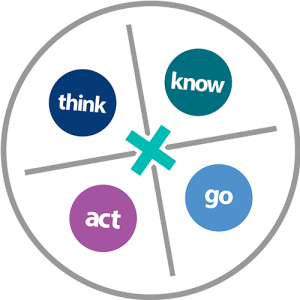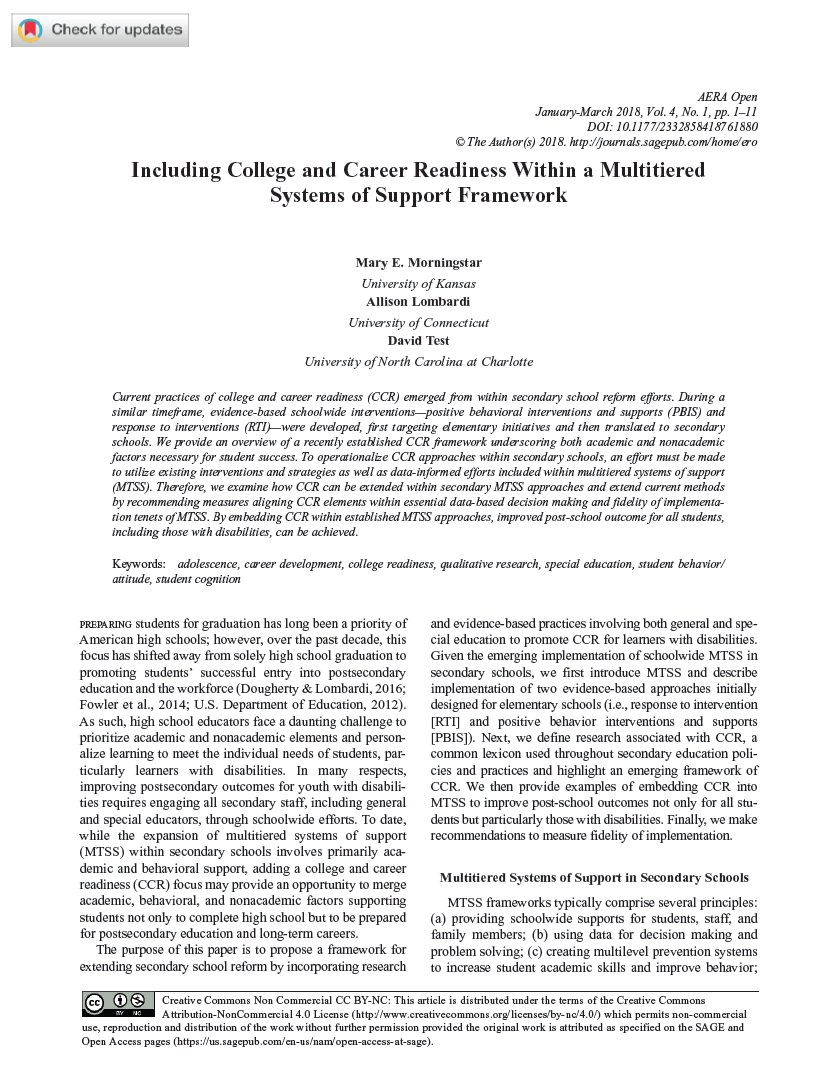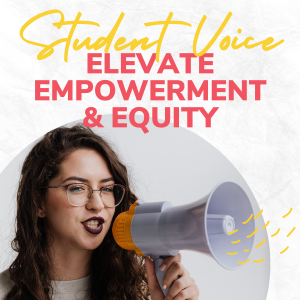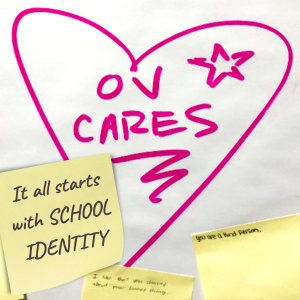Current practices of college and career readiness (CCR) emerged from within secondary school reform efforts. During a similar timeframe, evidence-based schoolwide interventions—positive behavioral interventions and supports (PBIS) and response to interventions (RTI)—were developed, first targeting elementary initiatives and then translated to secondary schools. We provide an overview of a recently established CCR framework underscoring both academic and nonacademic factors necessary for student success. To operationalize CCR approaches within secondary schools, an effort must be made to utilize existing interventions and strategies as well as data-informed efforts included within multitiered systems of support (MTSS). Therefore, we examine how CCR can be extended within secondary MTSS approaches and extend current methods by recommending measures aligning CCR elements within essential data-based decision making and fidelity of implementation tenets of MTSS. By embedding CCR within established MTSS approaches, improved post-school outcome for all students, including those with disabilities, can be achieved.
Preparing students for graduation has long been a priority of American high schools; however, over the past decade, this focus has shifted away from solely high school graduation to promoting students’ successful entry into postsecondary education and the workforce (Dougherty & Lombardi, 2016; Fowler et al., 2014; U.S. Department of Education, 2012). As such, high school educators face a daunting challenge to prioritize academic and nonacademic elements and personalize learning to meet the individual needs of students, particularly learners with disabilities. In many respects, improving postsecondary outcomes for youth with disabilities requires engaging all secondary staff, including general and special educators, through schoolwide efforts. To date, while the expansion of multitiered systems of support (MTSS) within secondary schools involves primarily academic and behavioral support, adding a college and career readiness (CCR) focus may provide an opportunity to merge academic, behavioral, and nonacademic factors supporting students not only to complete high school but to be prepared for postsecondary education and long-term careers.
The purpose of this paper is to propose a framework for extending secondary school reform by incorporating research and evidence-based practices involving both general and special education to promote CCR for learners with disabilities. Given the emerging implementation of schoolwide MTSS in secondary schools, we first introduce MTSS and describe implementation of two evidence-based approaches initially designed for elementary schools (i.e., response to intervention [RTI] and positive behavior interventions and supports [PBIS]). Next, we define research associated with CCR, a common lexicon used throughout secondary education policies and practices and highlight an emerging framework of CCR. We then provide examples of embedding CCR into MTSS to improve post-school outcomes not only for all students but particularly those with disabilities. Finally, we make recommendations to measure fidelity of implementation.
including college and career readiness within mtss.pdf (407 downloads )
Authors: Mary E. Morningstar, Allison Lombardi, David Test




